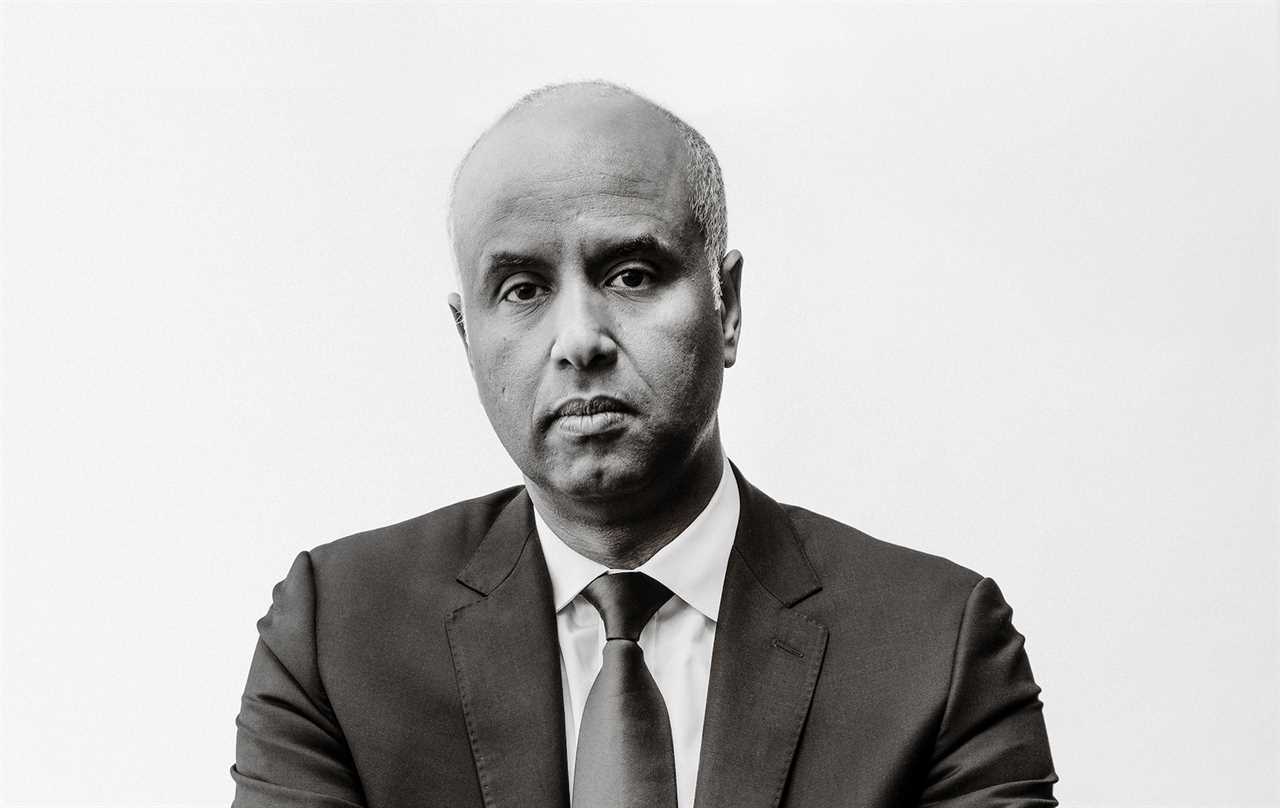
Ahmed Hussen’s first home in Canada was a social-housing unit on Hess Street in Hamilton that he shared with his cousin. He was only 16 years old then, a refugee who had fled Somalia during the civil war. By 2002, the same year he completed an undergraduate degree at York University, Hussen had co-founded the Regent Park Community Council to advocate for more subsidized units, services and amenities for residents amid a massive $500-million revitalization of the Toronto neighbourhood.
Hussen, who was elected to Parliament in 2015 and appointed minister of housing and diversity and inclusion last October, has deep knowledge of the complexities of unaffordable housing. The current real estate market has Canadians frantically scrambling for property—or priced out altogether. The issue was the undisputed focus of April’s federal budget, which outlined plans to increase construction, double tax credits for first-time home buyers, ban blind bidding and freeze foreign purchases of residential properties for the next two years. Some experts have questioned whether the measures will solve the problem, but Hussen remains confident in the Liberals’ vision.
Aaron Hutchins sat down with Hussen to discuss Canada’s housing crisis and more:
You lived in social housing during your early years in Canada. How much do you factor in that experience when you’re proposing solutions to a housing crisis that’s rooted in affordability?
Everyone in public office brings their personal and professional experience to the table. One of the reasons I’m passionate about making sure we increase our investments in affordable housing is because I know how much having a roof over your head can make a difference for someone. I would not have been able to pursue a post-secondary education, finish university and build up my skills to get a decent job if it weren’t for social housing units. There’s simply no way.
I want to make sure that we live in a country where those who are struggling to find affordable housing can get help from the government. We have to prevent people who are at risk of becoming homeless from ending up on the street. And we have to make sure that we find permanent housing solutions for those who are there now. It diminishes Canadian society when the final housing option for some people is to live on the street. It’s a failure for all of us.
The cost of rent is untenable in many parts of the country. The average one-bedroom in Vancouver and Toronto now costs more than $2,000 a month.
There are plenty of folks who are increasingly being priced out of the rental market. They’re moving farther away from the cities that they work in. I’m talking about construction workers, paramedics, firefighters and teachers. A lot of developers are simply not producing enough rental units, and so our government has made it a priority to build them across the country. Then you have the home ownership piece, which is equally important. We need to make sure that the dream of home ownership stays alive and well.
MORE: Canada offers abortion to U.S. women if Roe v. Wade is overturned
The government is planning to double the number of new homes built annually, from 200,000 to 400,000. How are you going to make that happen?
It’s important to look at this budget as a comprehensive strategy to tackle affordability issues, particularly around housing. Budget 2022 features investments that will go toward training more Canadians in the skilled trades, and provide money to create more apprenticeships, which will help build more homes. If you look at the ambitious targets for our immigration system this year—we expect to welcome 401,000 new permanent residents—the majority of those are skilled immigrants. They’re coming in to address our labour-market shortages and help us literally build our economy.

How much impact can the federal government have on its own?
It’s important that we aren’t doing this alone. We need municipal governments to accelerate their processes for both affordable housing projects and middle-class housing. In order to do that, we’re not just asking them to step up. We’re stepping up ourselves, with a $4-billion Housing Accelerator Fund. It’s important to have partners at the municipal level that facilitate quick approvals, and help open doors sooner for people living in the street and parks. People just want a more affordable place closer to where they work, or where they go to school.
RELATED: Nowhere to buy
You spent some time on the West Coast this spring talking about your government’s housing strategy. In April, Pierre Poilievre drew attention to a $4.8-million Vancouver home as one stark example of unaffordability. Another Conservative leadership candidate, Scott Aitchison, has talked about ending exclusionary zoning in big cities. How do their positions on housing differ from yours?
Mr. Poilievre doesn’t have a position—it’s all gimmicks. If he was serious about homeownership help for Canadians, why did he vote against the First-Time Homebuyer Incentive? The Conservatives voted against the 2022 budget, which proposes the extension of the Rapid Housing Initiative and top-ups to the co-investment fund. Some don’t like the Rental Construction Financing Initiative, which will build more than 71,000 homes across the country. Even within the caucus, one day they’ll talk about how we should invest more in housing, and the next day they’ll say the federal government shouldn’t actually be in this space, and that we should just give all the money to the provinces and walk away. It’s difficult to know where they stand. What’s increasingly becoming clear is that, on that side of the House, they really don’t have a deep understanding of the housing sector. They just don’t get it. If they did, they would come up with really well-thought-out ideas.
READ: Why is Pierre Poilievre so angry?
The gap between home prices and income has grown drastically, particularly for new immigrants. How do you grapple with the fact that, for many new Canadians who are renters, buying a house is basically impossible?
There’s no doubt that it’s becoming harder to access home ownership. That’s why we’re moving forward aggressively to deal with this. It’s not just about helping first-time home buyers, although that’s part of the mix. It’s also not just about banning foreign ownership for two years, or ending blind bidding. It’s all of the above. As the country with the fastest-growing population in the G7, we don’t have enough housing supply for skilled immigrants who are coming in to help us grow our economy. It’s not only a housing issue—it’s also an economic development issue. If we’re able to lead a truly national effort to build more transit-oriented housing, to have more inclusionary zoning and to remove the barriers to building more supply—and get it faster—I believe we can come out successfully on the other end.
Supply seems to be the key word here.
Supply is a big part of this. We are now on track to build the first new stock of co-op buildings in 30 years—6,000 of them. We’ve renewed the Rapid Housing Initiative for a third time, which will tack on another 6,000 homes. The money we’re putting into core investment funds will produce another almost 23,000 new homes, and the Housing Accelerator Fund alone will produce 100,000 new homes by 2024. We’re dealing with speculation, and we’re putting in measures to help first-time home buyers. But we are certainly aware of the need to dramatically increase supply.
When you were a community organizer 18 years ago, you told the Toronto Star you couldn’t handle the life of a politician, and you didn’t want to be front-and-centre. And yet here you are.
I still don’t see myself as a politician. I think this job is an extension of the grassroots community work that I was doing in Regent Park 20 years ago. It’s just on a different stage.
This interview appears in the June issue of Maclean’s and has been edited for length and clarity.
The post Ahmed Hussen has a plan to solve Canada’s housing crisis appeared first on Macleans.ca.
-------------------------------
By: Aaron Hutchins
Title: Ahmed Hussen has a plan to solve Canada’s housing crisis
Sourced From: www.macleans.ca/politics/ahmed-hussen-has-a-plan-to-solve-canadas-housing-crisis/
Published Date: Wed, 04 May 2022 18:37:54 +0000
Read More
 UK PoliticsWorld PoliticsVideosPrivacy PolicyTerms And Conditions
UK PoliticsWorld PoliticsVideosPrivacy PolicyTerms And Conditions
